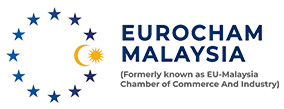The European Commission has approved, under EU State aid rules, a €2.98 billion German scheme to promote green district heating based on renewable energy and waste heat. The measure will contribute to the implementation of Germany‘s National Energy and Climate Plan and to the EU's strategic objectives relating to the EU Green Deal, in particular the EU's 2050 climate neutrality target.
Executive Vice-President Margrethe Vestager, in charge of competition policy, said: “This €2.98 billion scheme will contribute to greening the district heating sector in Germany, by supporting the construction of more efficient district heating systems and the decarbonisation of existing ones. With this measure, Germany will be able to increase the share of renewable energy and waste heat in the heating sector, thereby considerably decreasing its emissions. The German aid measure we have approved today will contribute to achieving the EU Green Deal objectives and help Germany meet its environmental targets, while limiting possible distortions of competition.”
The German scheme
In June 2022, Germany notified the Commission of its intention to introduce a scheme to promote green district heating based on renewable and waste heat.
The scheme, which will run until 30 August 2028, will be open to district heating network operators and operators not currently providing this service on the market. The aid will take the form of direct grants. The measure will support feasibility studies and transformation plans respectively for the construction and the decarbonisation of district heating networks. Under the scheme, district heating network operators will also be able to receive investment aid for:
the construction of new district heating systems with a share of renewable and waste heat of at least 75%;
the decarbonisation and upgrade of existing district heating systems to operate on the basis of renewable energy and waste heat; and
the installation of renewable heat and solar thermal generation facilities, heat pumps and heat reservoirs, as well as the integration of waste heat in district heating systems.
In addition, district heating network operators will be able to receive operating aid for the generation of renewable heat through solar thermal installations and heat pumps.
Support for feasibility studies and transformation plans will cover up to 50% of their costs. When it comes to investment aid, the aid amount per beneficiary will cover up to 40% of the eligible investment costs. In the case of operating aid, the aid will be calculated based on the amount of renewable heat produced. The granting authority will ensure that the aid does not exceed the funding gap (i.e. the aid amount necessary to attract the investments that otherwise would not take place).
This nation-wide scheme is expected to support the installation of approximately 681 MW of renewable heat generation capacity per year, reducing greenhouse gas emissions by approximately 4 million tonnes of CO2 per year.
The Commission's assessment
The Commission assessed the scheme under EU State aid rules, in particular Article 107(3)(c) of the Treaty on the Functioning of the European Union (‘TFEU'), which enables EU countries to support the development of certain economic activities subject to certain conditions, under the 2022 Guidelines on State aid for climate, environmental protection and energy.
The Commission found that:
The aid is necessary and appropriate for the decarbonisation of the district heating sector in Germany and that it has an ‘incentive effect'. As fossil fuels have a cost advantage over renewable and waste heat, in the absence of aid, investments in district heating generation facilities would be based on fossil fuels and thus reflect the current energy mix in Germany, characterised by high share of gas boilers and cogeneration installations. Furthermore, in the absence of aid, investments in new district heating networks and in the decarbonisation of existing networks are unlikely to take place due to the high costs and low revenues of such investments. Finally, without the aid, the beneficiaries of the scheme would not have sufficient incentives to plan the construction of new district heating networks and the decarbonisation of existing ones in a cost-effective manner.
The aid is proportionate and limited to the minimum necessary. While the level of aid is not based on the individual funding gap quantification for each of the beneficiaries, the granting authority must ensure that support does not exceed the funding gap. In addition, the support for heat generation will be subject to annual monitoring by the granting authority to ensure that the funding gap is not exceeded.
The positive effects of the aid on the decarbonisation of district heating systems in Germany outweigh any potential negative effects on competition and trade between Member States. The scheme will support the decarbonisation of the district heating sector in Germany, reducing greenhouse gas emissions, in line with the European Green Deal, without unduly distorting competition in the Single Market.
On this basis, the Commission approved the German scheme under EU State aid rules.
Read more here: https://ec.europa.eu/commission/presscorner/detail/en/ip_22_4823
#EUCommission #stateaid #German #scheme #green #district #heating #EU #greendeal #climateplan #energy #EUMYstrongertogether #eurochammy









